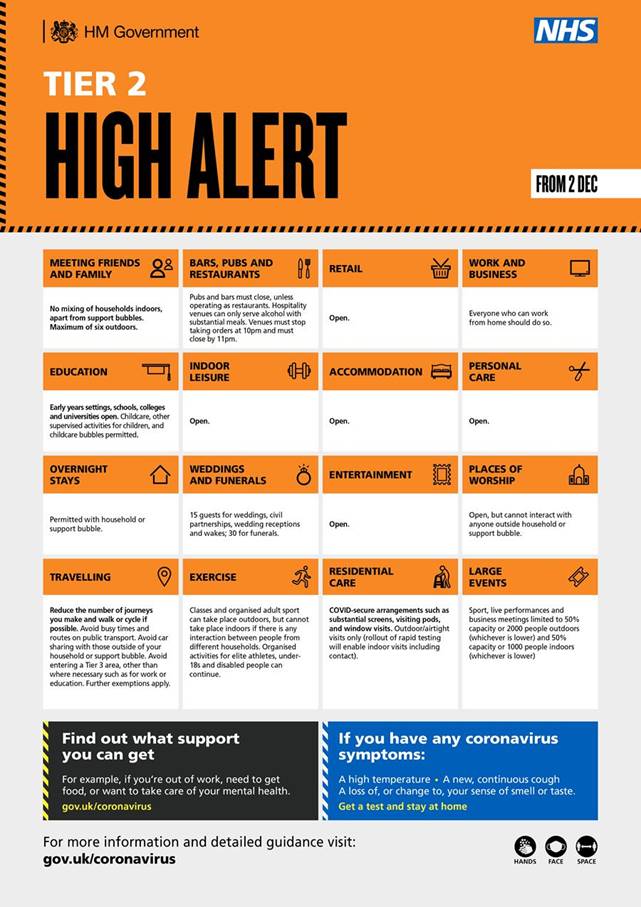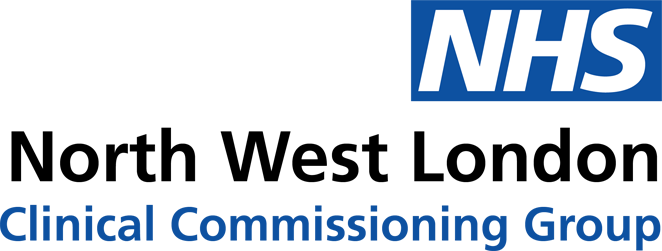3 December 2020
Documents can be found here
If you are receiving this update as a practice manager, please make sure you do share it with your colleagues, including sessional GPs.
ASK OF THE WEEK
Action: read the attached leaflet and circulate to your practice staff
Action: print attached poster and hang in practice staff room
Action: use the attached script with practice staff who have not yet booked their flu jabs
It's not too late to get your flu jab. If you work at a GP practice, it's particularly important to get your flu jab to protect yourself, your family and your patients from the flu. As a frontline worker in the NHS, you’re more likely to be exposed to flu and it's easy to pass it on to family, friends and patients, even if you don't have any symptoms. Being healthy doesn’t reduce your risk of getting flu or passing it on, and with COVID-19 in circulation, it’s more important than ever to stop the spread of flu and keep practices resilient and running with the full staff team.
UPDATED VITAMIN D GUIDANCE FOR PATIENTS FROM NICE
Action: Share guidance with patients who are at high risk from COVID-19 around vitamin D supplements
You may have seen the news which mentioned free daily Vitamin D supplements for patients. Although we haven’t received any official communication from NHSEI/PHE we thought it would be worth sharing the information available in the public domain.
Please note this only applies to patients who are at high risk from coronavirus (COVID-19) and the following criteria must be met to use this service:
- The patient has received a letter from the NHS or the Department of Health and Social Care (DHSC) saying they are at high risk from coronavirus
- They are aged 18 or over
- They live in England
An application will need to be completed by the patient (or their representative) and the Vitamin D supplements will be sent in the post. Checks will be made to confirm the applicant is on a list of people at high risk (clinically extremely vulnerable) from coronavirus before being accepted into the service.
The link below advises patients on whether they are eligible for the service, whether the supplements are suitable (via another link) and then takes them through the on-line application process.
https://www.nhs.uk/get-vitamin-d-supplements/check-vitamin-d-is-suitable
People are advised not to ‘opt in’ to receive the vitamin D supplement if:
- you are already taking, or are prescribed, a vitamin D supplement by your GP or healthcare professional
- you are under the age of 18
- you have a medical condition or treatment that means you may not be able to safely take as much vitamin D as the general population
More detail is contained in the links themselves.
Guidance related to asking other patient groups to purchase their Vitamin D Over-the-Counter has not changed.
NEW OXYGEN EQUIPMENT GUIDANCE FOR PRIMARY CARE
Action: Read the guidance and checklist, and answer the questions on this check list and take action where gaps are identified
As a result of the COVID-19 pandemic, different modalities of oxygen equipment have been made available to providers outside acute hospital settings. For many of these providers this is a novel situation and they will have had very little previous experience of administering oxygen therapy for their patients or residents other than in emergency situations.
As a result of this, and to support these organisations, the London Respiratory Network co-produced a checklist to support them to address key points.
The purpose of this check list is to offer guidance and ensure that governance processes are in place for the safe and effective use of oxygen in non-acute settings where it is being provided to treat patients with COVID-19.
Providers are encouraged to answer the questions on this check list and take action where gaps are identified, to ensure safe and appropriate oxygen therapy in their setting of care.
Clinical resources and guidance relating to the safe use of oxygen can be found on London Lungs: https://www.networks.nhs.uk/nhs-networks/london-lungs/?searchterm=london%20lungs
HELP SHAPE FUTURE NHS CANCER TRAINING
Action: Feedback to Healthy London Partnership about what you think future cancer training should look like here
The Pan London Cancer Training Needs Assessment (TNA) for Primary, Community and Social Care Staff was launched this week. The survey aims to gauge the following:
- Your knowledge of prevention, screening and risks of developing cancer
- Your knowledge of potential cancer signs and symptoms
- Give you confidence in talking about prevention of cancer, early diagnosis and living with and beyond cancer
- Give you confidence about your role in diagnosing cancer earlier and in providing holistic personalised care
- Your knowledge about practice, process and systems that have been put in place locally to support cancer diagnosis and holistic personalised care.
Please find attached a flyer for the TNA with information about the aims and objective of the assessment and a link to the survey itself.
The TNA will open from this week until the 15 December 2020. Healthy London Partnership who are organising the survey, would like to encourage as many frontline primary, community and social care staff to complete this assessment.
NORTH WEST LONDON RESIDENTS ASKED TO CONTACT ‘NHS111 FIRST’
Action: Advise patients on the new way to access emergency care in North West London. Patients should use ‘111 First’ to help them get the right care, in the right place, more quickly.
Patients are being asked to contact NHS 111 online (111.nhs.uk) or by phone first, before going to a hospital Accident and Emergency department (A&E/ED) if they have a medical need that is urgent but not life-threatening.
These new arrangements, launched on 1 December, are being rolled out across the country to help the NHS to better control the risk of coronavirus while space in A&E waiting rooms is reduced to ensure social distancing.
NHS111 can now arrange urgent face-to-face A&E appointments during an allocated timeslot anywhere in the country, if someone needs it - meaning shorter waiting times and fewer people in A&E. Arrangements are also in place to let A&Es know if shielding patients are coming so they can be kept safe.
NHS111 can also make direct appointments online, by phone or face-to-face with a variety of health services, including Urgent Treatment Centres, a patient’s own GP, specialised mental health crisis services, dental services and pharmacists for urgent repeat prescriptions and advice. If needed, an ambulance can also be despatched.
Arrangements will not change for people with life-threatening illnesses or injuries who should continue to dial 999 and anyone who arrives at A&E without calling NHS 111 will still receive medical care, with those needing emergency treatment prioritised.
To support this initiative as we go into the traditionally busy winter period, capacity in the NHS 111 service is being expanded significantly. Around 2,500 staff look after Londoners as part of the NHS 111 service, 24/7 365 days of the year; this number will be expanded by 644, including 166 more doctors, nurses, pharmacists and paramedics.
NEW GENERAL PRACTICE EXTRACTION SERVICE (GPES) FOR PHYSICAL HEALTH-CHECKS FOR PEOPLE WITH SEVERE MENTAL ILLNESS (PHSMI)
Action: Accept the invitation to participate in data collection on PHSMI issued via the Calculating Quality Reporting Services (CQRS). General Practices should have received an invitation to participate in the collection on the 26 November via the CQRS. Read more here
The NHS Long Term Plan commits to 280,000 people with a Severe Mental Illness (SMI) receiving a full annual Physical Health Check in 2021-22 rising to 390,000 people in 2023-24. As part of this, it is important to collect data on the number of people receiving physical health checks who fall within this group. This data collection aims to help reduce the levels of premature mortality for people living with severe mental illness (SMI) who die 15-20 years earlier than the rest of the population, largely due to preventable or treatable physical health problems.
Currently PHSMI data is collected quarterly via the Strategic Data Collection Service (SDCS). This collection method can be resource intensive to administer and the data is not as robust as a direct extract from GP clinical systems. We have therefore directed NHS Digital to establish a PHSMI GPES data collection to help monitor this key NHS Long Term Plan commitment.
GPES for PHSMI
This move to GPES will eventually reduce the burden on systems and improve the quality and completeness of the data. The NHS Digital Strategic Data Collection Service (SDCS) will continue to run alongside the GPES extract until the data is of sufficient quality and coverage to terminate this arrangement. General Practices have received an invitation to participate in the collection on the 26/11/2020 via the Calculating Quality Reporting Services (CQRS). It is essential that all practices accept the invitation. Further information can be found in the Data Provision Notice, and the Directions, which specify the legal basis for this collection.
Next Steps
NHS Digital will extract a full year of data initially and thereafter on a quarterly basis. The first extract is scheduled to take place in the second half of 2020-21 financial year and will cover the previous financial year of 2019-20.
If practices have any technical questions regarding this collection, please contact primarycare.domain@nhs.net.
Queries regarding CQRS participation should be sent to support@cqrs.co.uk.
TIER 2 GUIDANCE FROM NHSE
Action: Share the below with patients and staff around tier 2 guidance, also attached here

WEEKLY NHS MESSAGES FROM NW LONDON
Action: Read the key messages from the NHS and primary care in NW London here
TRAINING AND RESOURCES
This week we would like to flag the upcoming online training sessions
Date: 16th December 2020
Time: 12-1.30pm
Title: Training for Tackling Vaccine Hesitancy amongst parents for 0-5s childhood immunisations
This will be held online as a Microsoft Teams meeting. See the links below on how to join the meeting:
· Join on your computer or mobile app: Click here to join the meeting
· Join with a video conferencing device: 690052037@t.plcm.vc
Video Conference ID: 123 817 483 8
Alternate VTC dialing instructions
· Or call in (audio only): +44 113 486 0108,,772586569# United Kingdom, Leeds
Phone Conference ID: 772 586 569#
For more information, contact nwlccgs.communications.nwl@nhs.net.








